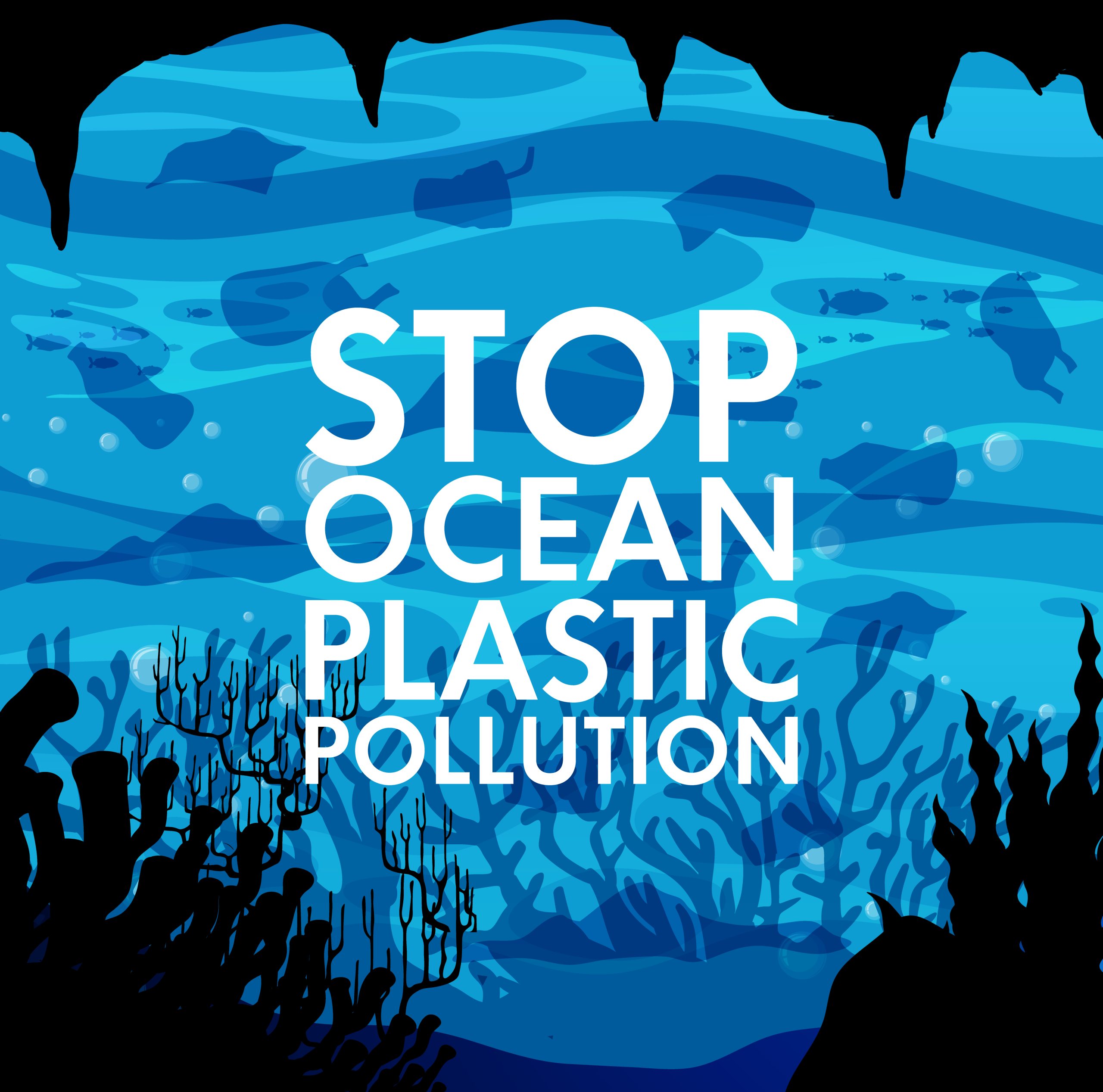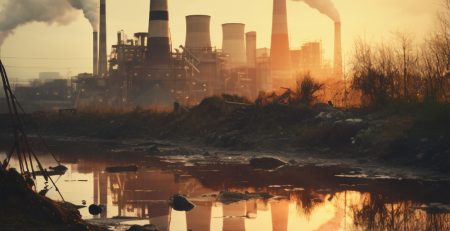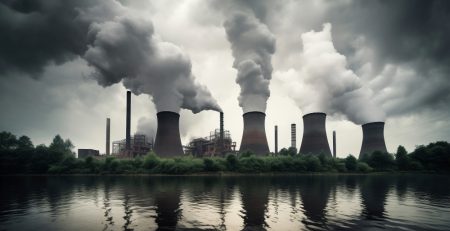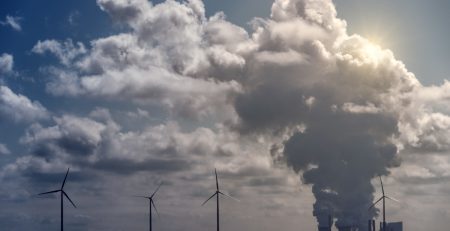Ocean Acidification: The Silent Killer Caused by Carbon Pollution
Ocean acidification is one of the most concerning environmental issues of our time. Yet, unlike other issues like climate change and biodiversity loss, it is often overlooked. This silent killer is caused by carbon pollution, and its effect on marine ecosystems and humans could be disastrous if ignored. This article will discuss the causes, effects, and potential problems of this problem.
What is Ocean Acidification?
Ocean acidification occurs when seawater becomes acidic due to excess carbon dioxide (CO₂) absorption from the atmosphere. This phenomenon, which is a common problem for oceans, estuaries, and other waterways on Earth, is a direct consequence of carbon pollution and fossil fuel use.
Since the beginning of the Industrial Revolution, the concentration of carbon dioxide (CO₂) in the atmosphere has increased due to burning fossil fuels and industrial and agricultural processes. The oceans absorb almost one-third of the carbon dioxide (CO₂) released into the atmosphere, and as the level of CO₂ increases, so does the ocean. During this period, research has shown that the average seawater pH has declined from 8.19 to 8.05, which is approximately a 30 percent increase in acidity.
When CO₂ is absorbed by seawater, several chemical reactions occur that result in an increased concentration of hydrogen ions. This increase makes the seawater more acidic and carbonate ions relatively less abundant.

The chart above demonstrates the Global mean ocean surface pH from 1850 to 2100, from climate models. The modelled historical trend shows an overall decrease of about 0.1 pH units (black). Projections up to 2100 are shown for high emission scenarios (RCP8.5, red) and low emission scenarios (RCP2.6, blue). Source: Gattuso et al. 2014, Fig. OA1b.
Causes of Ocean Acidification
The primary cause of ocean acidification is burning fossil fuels such as coal, oil, and natural gas. Burning these fuels releases large amounts of CO2 into the atmosphere, which the ocean absorbs. Another main culprit behind the drastic increase in ocean acidity is deforestation, and that is because when a forest is cut or burnt down, it releases all the carbon that is stored in the air. Other activities, such as industrial and agricultural processes, also contribute to ocean acidification.
As carbon dioxide dissolves into the ocean, it triggers a chemical reaction that increases acidity. The reaction between CO2 and water produces carbonic acid, which releases hydrogen and bicarbonate ions. The water gets increasingly acidic as the number of hydrogen ions increases.
Why Ocean Acidification is a Problem
The speed of change and its effect on ocean ecosystems justify a quick intervention in ocean acidification.
When CO₂ dissolves into the ocean, it reduces the availability of carbonate, an essential component of shellfish like oysters, mussels, and clams to create their skeletons and protective shells. Therefore, lower carbonate concentrations in marine environments have a direct impact on the survival of these animals. A decrease in calcification also impacts coral reefs, which are vital components of marine ecosystems. Coral reefs, an essential part of marine ecosystems, are also affected by a decline in calcification. Coral reefs shelter 25 percent of marine species and protect coastal communities from erosion and storm surges. Acidification is especially difficult on reefs that already face natural bioerosion from some species of fish and worms that eat them.
However, ocean acidification is not a problem to the marine ecosystem alone, as humans are also affected. The effects of ocean acidification can be felt on land, in water, and across the entire food chain. A significant portion of our economy depends on the oceans one way or the other. For example, the United States shellfish industry is crucial for the coastal economies, creating thousands of jobs and bringing in millions of dollars in revenue every year.
Effects of Ocean Acidification
Ocean acidification affects marine organisms and ecosystems as well as humans; here are the effects of ocean acidification:
Effect on Marine Organisms and Ecosystems
- Shellfish and Marine Life: Ocean acidification reduces the amount of carbonate, a compound needed by many shellfish such as oysters, mussels, coral, plankton, and clams to build their shells and protective structures. This makes it more challenging to form shells and skeletons, and existing shells may start dissolving.
Due to ocean acidification, marine organisms could also experience growth, development, and survival changes. Many species are vulnerable at their early life stages.
- Coral Reefs: Coral reefs are particularly vulnerable to ocean acidification as they depend on calcium carbonate to build their structures. The increased ocean acidity makes it difficult for them to maintain their calcium carbonate structures, resulting in increased vulnerability to damage from storms and predators.
- Fish and Food Webs: Changes in ocean acidity can also affect marine organisms, especially fish populations, by altering their behavior, growth, and reproduction. As key components of marine food webs, any decline in fish populations can have ripple effects on the ecosystem, affecting predators, prey, and overall biodiversity.
Effects on the Human Societies
Changes in marine ecosystems will definitely affect human societies, which depend on the goods and services provided by these ecosystems. The impact on humans may include substantial revenue declines, loss of employment and livelihood, and other indirect economic costs.
Some of the effects associated with a decline in the ecosystems are:
- Food: Ocean acidification may impact food security. It will affect important marine species for commerce and ecology, which may impact our food supply.
- Coastal protection: Marine ecosystems such as coral reefs protect shorelines from the destructive action of storms, surges, and cyclones. This protective function of reefs prevents loss of life, property damage, and erosion.
- Tourism: the tourism industry can be significantly affected by the impact of ocean acidification on marine ecosystems.
- Carbon storage and climate regulation: The ocean’s capacity to absorb CO₂ decreases as ocean acidification increases. Highly acidic oceans are less effective in moderating climate change.
Potential Solutions
Addressing ocean acidification requires a complex approach that involves reducing carbon emissions, improving marine conservation efforts, and promoting sustainable practices.
- Reduce Carbon Emission: The first and most effective solution to ocean acidification is to reduce carbon emissions, and that is only possible by reducing dependence on fossil fuels and transitioning to renewable energy sources. Also, improving energy efficiency and promoting carbon capture and storage technologies can help reduce CO₂ emissions and mitigate their effect on the oceans.
- Improvements in Water Quality: localized sources of acidification from runoffs and pollutants like fertilizers should be monitored and regulated.
- Marine Conservation: protecting and restoring marine ecosystems, such as coral reefs and seagrass beds, can help cushion the effects of ocean acidification by maintaining biodiversity and ecological resilience. Establishing protected areas and reducing pollution can also help mitigate the impacts of other stressors on marine life.
- Sustainable Practices: adopting sustainable fishing practices, reducing chemical runoff from agriculture, and promoting tourism can help reduce the overall stress on marine ecosystems and boost the ability to adapt to changes in environmental conditions.
Conclusion
Ocean acidification is a silent but deadly consequence of carbon emissions that threatens the ecosystems worldwide. Although the problem seems daunting, there are steps we can take to address it and protect our oceans. By reducing carbon emissions, enhancing marine conservation efforts, and promoting sustainable practices, we can mitigate the impacts of ocean acidification and ensure a healthier and more stable ocean ecosystem.
References
https://oceanservice.noaa.gov/facts/acidification.html#:~:text=Ocean%20acidification%20ref ers%20to%20a,CO2
https://coastadapt.com.au/ocean-acidification-and-its-effects
https://www.nrdc.org/stories/ocean-acidification-what-you-need-know











Leave a Reply